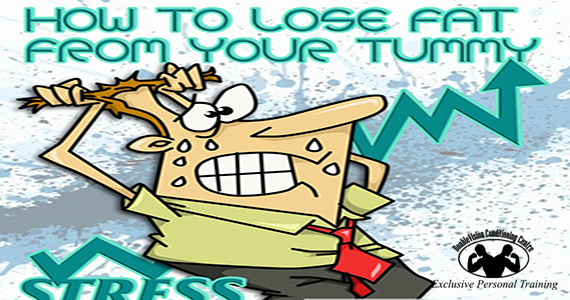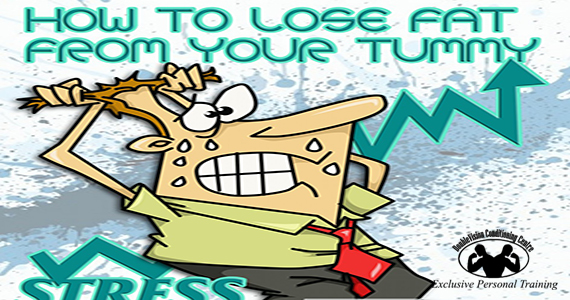
Highlights of the Podcast:
- - Recording the podcast in Mark’s car
- A listener thinks the Gray twins are humorous
- Intros the topic is why you store fat around your stomach
- British men are becoming more “feminine” due to the environment and toxins
- Difference between fat around the bellybutton and on your hips
- Eating processed carbohydrates leads to fat on your hips
- Mark and his beef wellington
- Proposed cooking lessons at the DVCC
- Stress and high amounts of Cortisol causes the fat around your bellybutton
- Lack of Cortisol in the morning makes you struggle to get up
- The inverse Cortisol relationship
- The Cortisol test
- Remove stressors to de-stress yourself.
- The twins joke they’d have a physical fight
- Identify the cause of stress
- Steady state marathon style training versus long steady bouts of aerobic type exercise
- Magnesium regulates Cortisol levels
- The different ways that Cortisol can be raised too high
- Ways to combat high amounts of Cortisol
- Adaptogens like Holy Basil, Licorice and Carnitine
- Too much caffeine stimulants cause stress too
Transcript:
Hello and welcome to another new episode of the iloveweightloss.co.uk podcast. I’m Mark Gray.
Stephen: And I’m Stephen Gray.
Mark: So, it’s Monday. I hope you’re all having a good start to your week.
Stephen: And where are we, Mark?
Mark: We are sitting in a car.
Stephen: Sitting in Mark’s car because the place we normally do our podcast is a little bit noisy today. So we thought we’d test out using the car. Apparently, it’s got nice acoustics.
Mark: I think so.
Stephen: So we’ll see.
Mark: So what are we talking about today, Stephen? Seeing as you are the assigned – I assigned you this task.
Stephen: I have the brains. Have you noticed I am the brains behind – well, the brains anyway. I was going to say not the beauty. There’s no beauty, but I’m the brains anyway.
Mark: True, true. Actually, Patricia sent me an email today, saying that she was listening to our podcast and she thinks we’re humorous. So…
Stephen: [Laughs] there’s one. There is one. There is one person.
Mark: It’s official. We are humorous. We are very funny. There you go.
Stephen: Apparently.
Mark: Right. Let’s get on it.
Stephen: Right. So with today, I wanted to talk about, or we, we’re going to talk a little bit more in depth about why you store fat around your stomach. I’ve spoken to a few actually guys and they said, “Great episode last time about menopause, but if I’m storing fat around my stomach, does that mean I’m going around through the menopause as well?” Obviously, I had to look this up.
Mark: Today, anyway. But to be fair, guys, they actually say that British men are becoming more and more female in the way their hormones are because of the environment and things. So you know what? I would – well, it’s not going to happen. However, more and more issues that women face that are normally specific to them I reckon are becoming more and more…
Stephen: Yes, they are.
Mark: Prevalent now.
Stephen: And that’s due to a lot of the toxins, what they call [Unintelligible 01:54], the outside sort of [Unintelligible] 01:56] that are basically affecting men’s testosterone and things. But anyway, we are going to talk about why you would store fat around your stomach if it’s not a menopause reason.
Mark: Okay. So yes, exactly. So for men and for women who aren’t heading towards menopause who are kind of, to be fair, 20 to 35 to 40.
Stephen: Plus, it can be the reason of going through the menopause as well. Yes, and this is for men and women. This can be for anyone, really. But I think we should differentiate between what we mean by storing fat around your stomach because obviously, you’ve got your bellybutton area, and then you’ve got your sort of hip area, and people kind of treat them as the same, but they are a little bit different in the reasons why you store fat around there.
So, to go on to that, the reason you store fat around your hips – so what people call the love handle area – is because generally, in most cases because of the amount of processed carbohydrate you eat or it generally can actually be related to the amount of carbohydrate you eat. If you’re eating too much for you to be able to handle, you’ll store body fat around your hips. So basically, if you’re eating white bread, pasta and things like that – all of the white foods, generally – you’re far more likely to store fat around your hips.
Mark: And it should be said that when you say “processed carbohydrates for you,” that it really means that some people can. You can have a friend who can eat a whole load of what looks like processed, refined…
Stephen: Sugary.
Mark: Sugary carbs that are terrible that we’re saying are bad. They are bad for health. However, it might not affect them in the same way it would perhaps affect you.
Stephen: So everyone has that friend who seems to be able to eat whatever they want and not put on fat. That will be because they are more able to handle carbohydrate than – well, the majority of people are.
Mark: Exactly. But it is the large, large percentage of us can’t have lots of processed, refined carbohydrates and not put on fat around the stomach area.
Stephen: I mean, Mark, you’ve done a test recently, haven’t you? Where you decided to test that you’re able to do this? Isn’t that right, or am I wrong?
Mark: [Laughs] Yes, and I passed the test. An involuntary test. Actually, I went to Jamie Oliver’s recipes over the weekend, and I, with my girlfriend, I cooked beef wellington. Let’s be honest, it’s not the best. It’s got lots of gluten. It wasn’t gluten-free. But we were taught how to cook it and then we got one each. If you want to go to sleep after a meal, have beef wellington because that destroyed me. Yes, you might be right. Probably, if I checked my hip area, I’m going in the dark and keeping my clothes on until – I probably have gone up in body fat around the area because of the refined carbohydrates I had. However, I would suggest actually that it’s a really good day out to do. We’re actually considering bringing it to the DVCC. Not obviously Jamie Oliver because he doesn’t reply to my text. But we’re thinking about having some healthy cooking, demonstrations on how to cook.
Stephen: And lessons.
Mark: Lessons at the DVCCs or somewhere close. So if anyone has any contacts or knows of anyone that would be good at that, then let us know because it was really good fun.
Stephen: I reckon it will be great for all couple of hundred of DVCC clients to get along and cook together.
Mark: Well I think we can have a massive banquet.
Stephen: That would be awesome.
Mark: Anyway, I digress.
Stephen: So we covered why you’d store fat on your hips, but today we’re actually talking about the bellybutton area. So a lot of people get confused between the two and there’s a distinct difference between why you store fat around your bellybutton area as opposed to say your hip area, your chest or your thighs or whatever it may be. The main reason – Mark, for your bellybutton area, what’s the main reason you would store fat around there?
Mark: Stress from a younger sibling, generally. For me, it’s stress. And for me, obviously, it’s stress from my little brother, Stephen. So yes, one of the main reasons you would store fat around your bellybutton area is due to a high amount of Cortisol, which is the stress hormone. You release that when you are stressed.
Stephen: That’s right. So, basically, you will store fat around your tummy area when you find that you’re going through times of more stress, but we should also say that there are47d a lot of different things that can cause you to release this hormone. When we say release this hormone, we mean release it excessively because actually, Cortisol is important to have in your body and to use. So, for example, when a lot of people find that they can’t get up very well in the morning – so they say they struggle to get out of bed – basically, you should hop out of bed. You shouldn’t have to wait for your alarm. You should pop out bed straight away.
Mark: And a point on that, this morning I struggled to get up. My 6 AM alarm called and I struggled to get up. And that was because of the processed food.
Stephen: It’s all because of the gluten and things like that.
Mark: Yes. Exactly. But it’s actually Cortisol. It’s one of the main hormones that will allow you to pop out, out of bed. Your Cortisol should be high in the morning, and basically throughout the day, it should decrease until you’re going to bedtime, and it should be really low – almost on the floor. And that allows you to actually sleep. So what happens is that a lot of people find that they have an inverse Cortisol relationship. In other words, they struggle to get out of bed, but then they struggle to get to sleep. So basically, what’s happening is that their Cortisol hormone, the stress hormone, is too low in the morning and too high in the evening. And we see this a lot.
Actually, we had this very similar thing because you can actually get a test for this hormone. They’re not particularly expensive. It’s just the case of taking saliva three times throughout the day. We actually did this test and we found that our Cortisol was too low in the morning. It actually wasn’t too high in the evening. It was okay. But it was too low. So we were always thinking, why are we so tired in the mornings? And it’s actually ever since we started, when we were playing professional rugby, we basically overtrained by a long way. What that meant was that we were producing this hormone too much. And so in the end, we were struggling to produce enough. So that was why I ended up being low in the mornings. And so the fact that we actually had this test allowed us to actually do something about it, and it’s not that hard to actually do a few different things to increase the hormone or decrease the stress hormone if you need to.
So what you can do then, the number one thing is if you’re chronically stressed, is try and remove the stressor. It’s often very hard to do that, but that is one of the main things you can do. For example, it might be that you’re constantly arguing in a relationship. You can perhaps step away from that, and that would reduce the stress there.
Stephen: But the first thing actually before that – I think you jumped there a little bit, Mark – is to decide what happens to you. So do you struggle to get out of bed in the morning, and do you struggle to go to sleep in the evening? Because that’s not necessarily the case. So some people might get out of bed easily, but they struggle to go to bed or get to sleep. So it depends on you, personally.
Mark: But is that all caused by stress?
Stephen: It’s all caused by the Cortisol hormone, yes.
Mark: And that is released when?
Stephen: When in times of stress.
Mark: Okay. So if stress causes this, then the number one thing surely would be to actually identify and…
Stephen: You’re looking at me like you want to fight.
Mark: [Laughs]
Stephen: Do you want to fight? Is that where this is going?
Mark: Well, because you’re wrong. You’re wrong.
Stephen: That could be a high or a new low of the podcast, is when we have a physical fight.
Mark: The last one was what? Three-and-a-half years ago?
Stephen: Hence the scar on your eye.
Mark: True. He did scar my eye. Anyway, basically, I’m saying that the stress, no matter what, is the issue, yes.
Stephen: And the end result if you’re having chronic levels of stress, then you will actually end up struggling to get out of bed.
Mark: There we go.
Stephen: Okay.
Mark: A win. A number one win for Mark. So yes. So try and identify what is the cause of the stress. It could your job, it could be work. Well, that’s the same thing. It could be relationships. It could be that you’re doing lots of steady state marathon style training.
Stephen: Yes. That’s one to actually mention that a lot of people don’t realize causes a lot of stress and causes you to release that Cortisol hormone, is doing long, steady bouts of aerobic type exercise. And so that’s why we say that the most effective way for fat loss – actually, the most effective way for body composition overall, is short, sharp bouts of high intensity type training and resistance work. Because, again, the problem with when you release Cortisol is it’s acidic and your body wants to be in a more alkaline state. So to do that, it ends up taking Glutamine from your muscles, breaking down your muscles, and actually taking calcium away from your bones, so breaking down your bones. So chronic levels of stress and too much releasing of the Cortisol hormone can cause you to lose muscle and actually lose bone density as well.
Mark: Good. Good point. I’m just thinking then actually, wouldn’t it be funny if we had a little video camera videoing us as we’re doing this? I reckon that would be a good little blooper thing as we punch each other and things. Anyway, back to the task at hand.
Stephen: Yes. So I think a lot of people will find that when they think about it, they struggle to get out of bed when I say you should be popping out of bed. You should be jumping out, raring to go. And then a lot of people struggle to get to sleep. And so basically, like I said, it means that your Cortisol is too low in the morning and too high in the evening. Now, the most effective way, I found and we found over years of experience, to decrease that Cortisol hormone in the evening and allow you to sleep far more effectively and handle stress a lot better is through Magnesium. It’s one of the most cost effective ways of doing it we found really, really…
Mark: Really easy to do. Just taking a couple of Magnesium, which you’re naturally taking them anyway, and just taking that little of extra so that you’re able to have enough Magnesium to, one, go to sleep and sleep well. Two, to handle stress because every time you’re under a stressful situation, you deplete Magnesium.
But I wanted to talk about all the different ways that Cortisol can be raised too high. So one, we’ll do like a little tennis match where I’ll say one, and then you have to say one back to me. Because there is nothing written so this could be where finally, I can prove…
Stephen: I think different.
Mark: So I’m going to go with being dehydrated. So not drinking enough water can be a reason that you produce too much Cortisol because it puts your body under stress.
Stephen: Eating foods that you’re intolerant to. Your body reacts as if it’s a pathogen. So like something that it doesn’t want in its body and it reacts the same, and it produces Cortisol.
Mark: Gluten.
Stephen: [Laughs] You can’t have that one because that’s the same thing.
Mark: But it’s not. It’s different. It’s slightly different. A lot of people have heard of gluten being gluten-intolerant, but a lot of people don’t realize that you can be intolerant to certain foods. And that’s very individual. So some people can be intolerant to beef. Some people could be intolerant to fish. They could be intolerant to onions. There’s a lot of different things that you can be intolerant to. So one of the effective ways of doing that, a lot of people will know if a food gives them a bad stomach or gives them spots and things like that. So for example, a lot of people say that the ones to really start and take out easiest, and do it for two weeks and then see, would be gluten and dairy. That would be the first two to really look at and then take them out for two weeks. And then if you then reintroduce them and you find that you’re actually getting symptoms from it, then obviously, that would be one that’s causing the Cortisol hormone to be produced in your body and store fat around your stomach area.
Stephen: And another one would be lack of sleep, funny enough.
Mark: Good. As in not getting enough.
Stephen: Not getting enough.
Mark: Okay. I’ll go with lack of quality sleep. So not getting enough quality sleep. That’s called piggybacking. Another one would be just an outside stressor such as a bad boss or a not positive relationship.
Stephen: Good. Mine would be not having a positive outlook on life. So focusing on negatives rather than positives. So something doesn’t necessarily have to be bad happening to you to cause stress. You might just find that some people focus on the negatives rather than the positives, and that causes stress too.
Mark: Stony silence. Lack of recovery from exercise, which, I might add, is very, very hard to do for the average person, but that is one. If you overtrain and don’t recover, then you can produce too much Cortisol, which is what we did when we were professional sportspeople, but I mean…
Stephen: We were training three times a day at least.
Mark: We were training at ridiculous amounts of time a day.
Stephen: A ridiculous amount. We used to warm up for 20 minutes, didn’t we?
Mark: Twenty minutes on the treadmill at 16 kilometers an hour.
Stephen: Yes.
Mark: I mean that was our warm up for the 20 minutes on that. For most people you don’t have to worry about it, but it’s still an option. I’ll pass it back to you, Stephen.
[Silence]
Mark: Five, four, three, two, one! And so we have…
Stephen: There’s loads. I can’t think of any.
Mark: And so we have a winner there. It’s called Mark.
Stephen: Okay. You might have pretty identified perhaps one of those that you’re actually experiencing and perhaps could be causing you to have a too raised Cortisol, and there are ways to combat all these.
Mark: I mean the first one to look at would normally be most people’s training. If they’re doing too much long steady state cardio, that’s the normal thing for a lot of people to look at. Also, the next one would probably be to look at the types of food you’re eating.
Stephen: Right. Okay. And then quality sleep is one.
Mark: Quality sleep is an easy one to really sort out.
Stephen: There’s also herbs and natural supplements that you can take to help with reducing your Cortisol or increasing your Cortisol, depending on what you need at certain times, such as…
Mark: Oh, and what actually I think we should have mentioned was that another problem that often cause the stress hormone is that it can affect libido.
Stephen: Right. Yes. So with the stress or Cortisol high, you won’t be able to produce the same amount of sex hormones. Testosterone would be lower and things like that. So the libido will suffer.
Mark: Right.
Stephen: So that’s why people know when they’re stressed, they tend not to have the same sort of libidos they do when they’re relaxed.
Mark: So the supplements that can help, apart from Magnesium?
Stephen: It would be holy basil.
Mark: A good one.
Stephen: It’s very effective. There’s a type of herbs called “Adaptogens.” Basically, they adapt to if your Cortisol is low when it should be high, they’ll increase it. And if it’s high when it should be low, they’ll decrease it. They actually do whatever is needed and they’re called Adaptogens. So holy basil would be a good one.
Mark: Licorice.
Stephen: Licorice is a very good one in the mornings because that will raise your…
Mark: As a supplement and not as a sweet.
Stephen: And that will actually increase what’s called – basically, it would increase the half-life of Cortisol, which basically would mean that you have more energy at the midmorning time of day.
Mark: We took that one when we were sorting ours out.
Stephen: That was one of the ones we took when we sorted ours out.
Mark: Another one would be – if you’re struggling to get up in the morning – would be Carnitine. I’m actually looking to making this available for all DVCC clients because Carnitine is a really great one for one, giving you energy, but also, it makes you insulin-sensitive and things like that. It helps you lose body fat, basically. Carnitine is a really good one. Say, for example, you’re a stressed man and you have to go to London to work or what have you, then Carnitine would be a really good one to really help you out in the mornings.
Stephen: Yes. Good.
Mark: Okay.
Stephen: Oh, we should have added too much caffeine stimulants can cause stress.
Mark: Okay. Too many stimulants. Not just caffeine.
Stephen: Not necessarily.
Mark: Okay. Because we’re sitting here drinking coffee. So at the right time, it’s not a bad thing. People will say it is. However, they are wrong. So you can have too much, sure, and at wrong times, but in general, it is a good thing if used properly. So I think we should finish it there. We could go into real, real super depth about this. Maybe we will in later podcasts, but I think it should give you enough to look at your own lifestyle, your own life, basically, to see whether you are finding that yes, I’m struggling to get up in the morning or struggling to get to sleep or what have you and vice versa, depending on how it can be. Hopefully, we’ve given you a few things to look at that you can easily look at to make sure that they’re not the things that are causing you to be storing fat around your stomach.
Now, your action steps that I would like you to take. Like we say, we’ve got hundreds of people downloading this podcast every month now. What I want you to do though is if you’re listening to this and you’re finishing listening to it now, is comment below. Let us know what perhaps stress that you’re under or if it’s affecting your sleep or fat loss efforts, and we’ll be able to give you the best thing that you can do for it. So comment below, and on the Facebook box, and let us know.
Stephen: Oh, and if you think you know anyone that would benefit from being able to download these and listen to them, then by all means, send them the podcast.
Mark: Yes. And they can simply put their email address in the top.
Stephen: It doesn’t matter where they are. They can be in Timbuktu, as we’ve discussed before.
Mark: Which is a place. They can put their email at the top in the box, and then we’ll send it every time we release a new one.
Stephen: Sure.
Mark: Take care and have a lovely week!
Stephen: See you soon.







